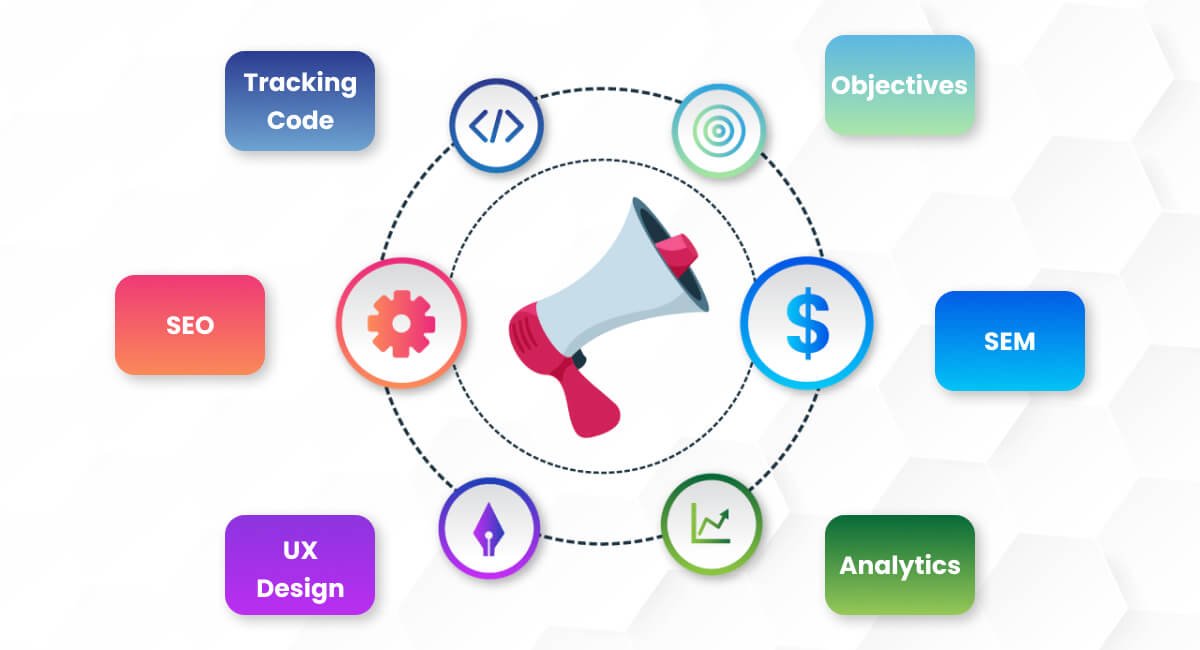How to Create a Successful Digital Marketing Campaign?

Digital marketing refers to the use of digital channels and technologies to promote products, services, or brands to reach and engage with a target audience.
1. SEO helps in promoting your business by improving your website’s visibility on search engines, increasing organic traffic, and targeting relevant keywords to reach potential customers actively searching for products or services like yours. It builds credibility and trust with users, establishes your brand as a top choice, and provides a cost-effective long-term marketing strategy that gives you a competitive advantage in the digital landscape.
2. Tracking codes, such as Google Analytics, play a crucial role in digital marketing by providing valuable insights into website performance. These codes allow businesses to track user behavior, measure campaign effectiveness, analyze traffic sources, and understand audience demographics. By utilizing tracking codes, businesses can make data-driven decisions, optimize marketing strategies, and improve overall ROI by targeting their efforts more effectively.
3. When running digital marketing campaigns, it’s important to set objectives such as increasing brand awareness, driving website traffic, generating leads, and improving conversions. These objectives guide your efforts, help measure success, and align your digital marketing strategies with overall business goals.
4. SEM (Search Engine Marketing) increases business by providing immediate visibility in search engine results, targeting ads to reach potential customers actively searching for products or services, and offering cost control and measurable results. With SEM, businesses can quickly attract qualified leads, optimize their advertising budget, and gain a competitive advantage in the online marketplace.
5. Analytics helps in digital marketing by providing data-driven insights for informed decision-making, evaluating campaign performance, understanding audience behavior and demographics, measuring ROI, identifying optimization opportunities, and conducting A/B tests to improve marketing strategies and drive business growth.
6. UX (User Experience) design plays a crucial role in increasing business by enhancing website usability, improving customer satisfaction, and driving conversions. With intuitive navigation, responsive design, clear calls to action, and seamless interactions, UX design creates a positive user journey that builds trust, encourages engagement, and ultimately leads to higher conversions and repeat business.
Do you have any questions about Digital Marketing? Let us know in the comments below.

